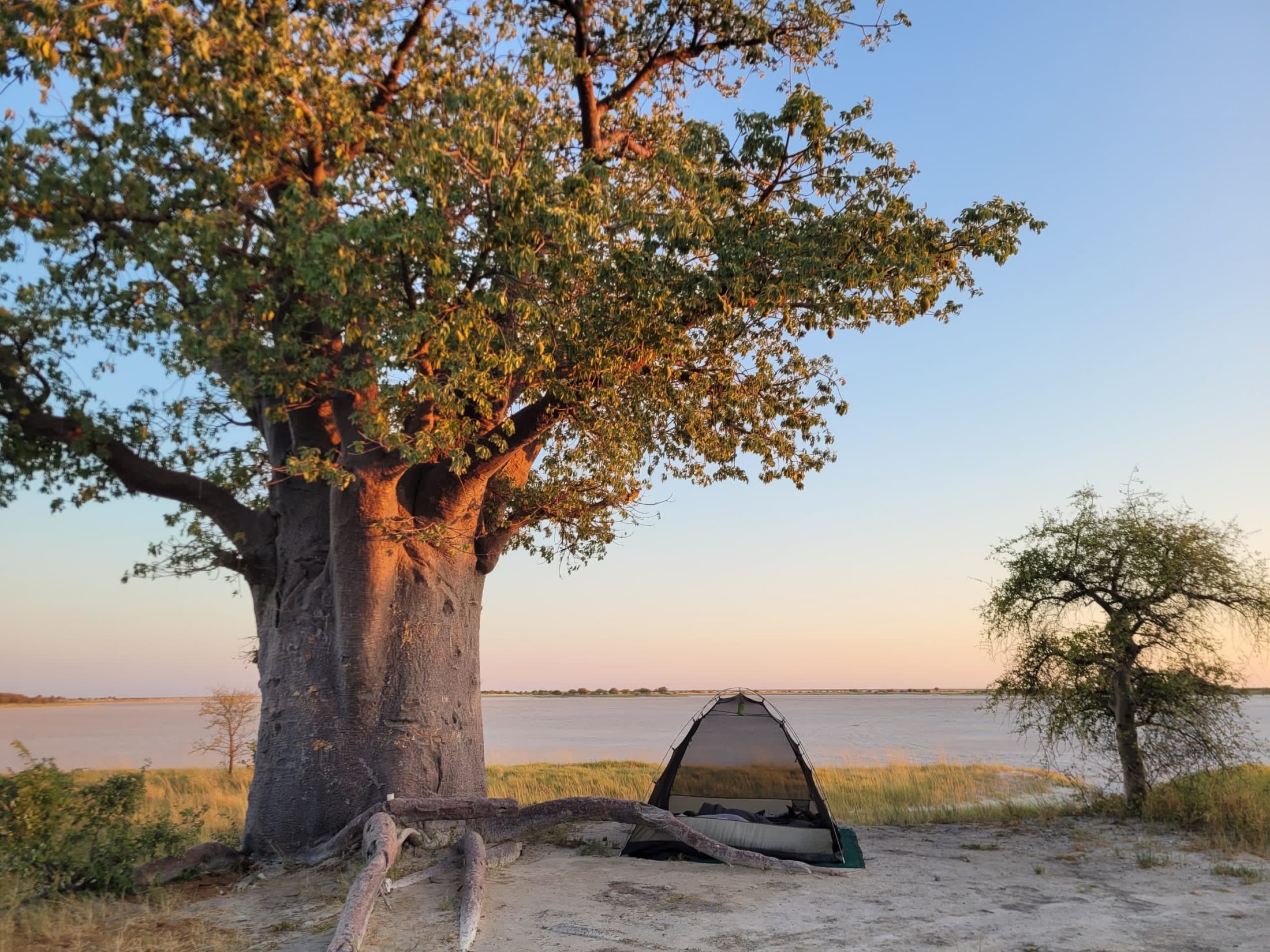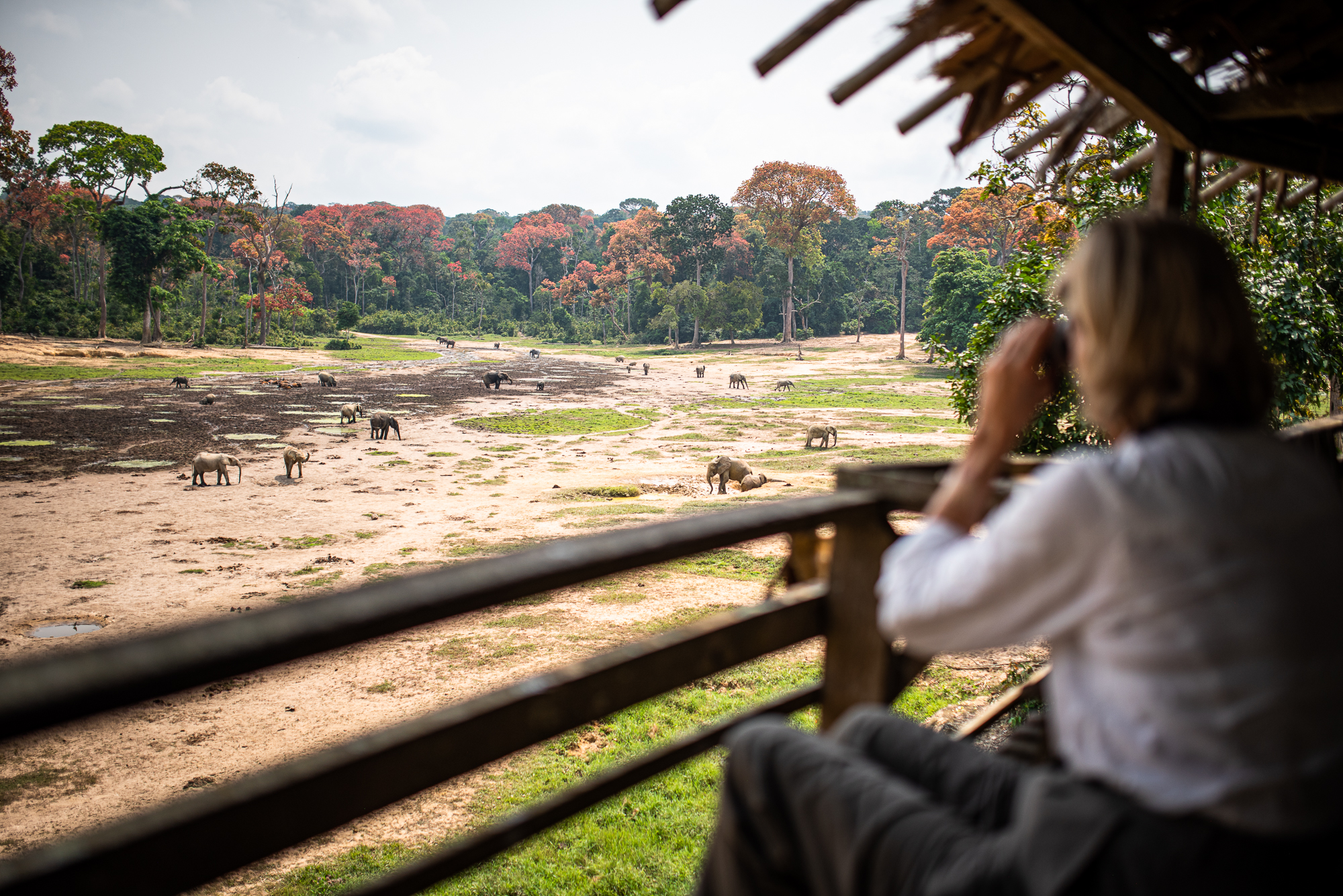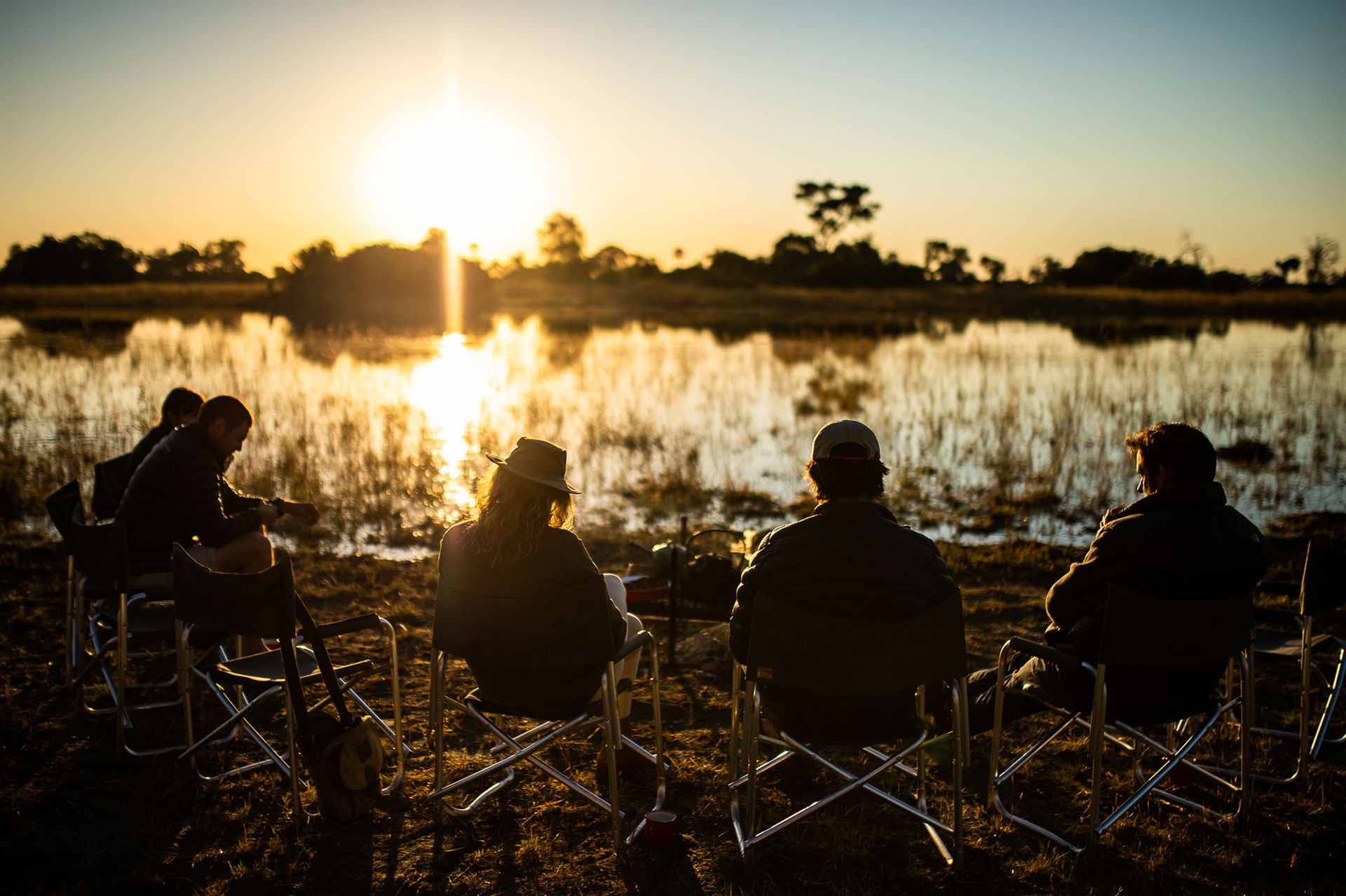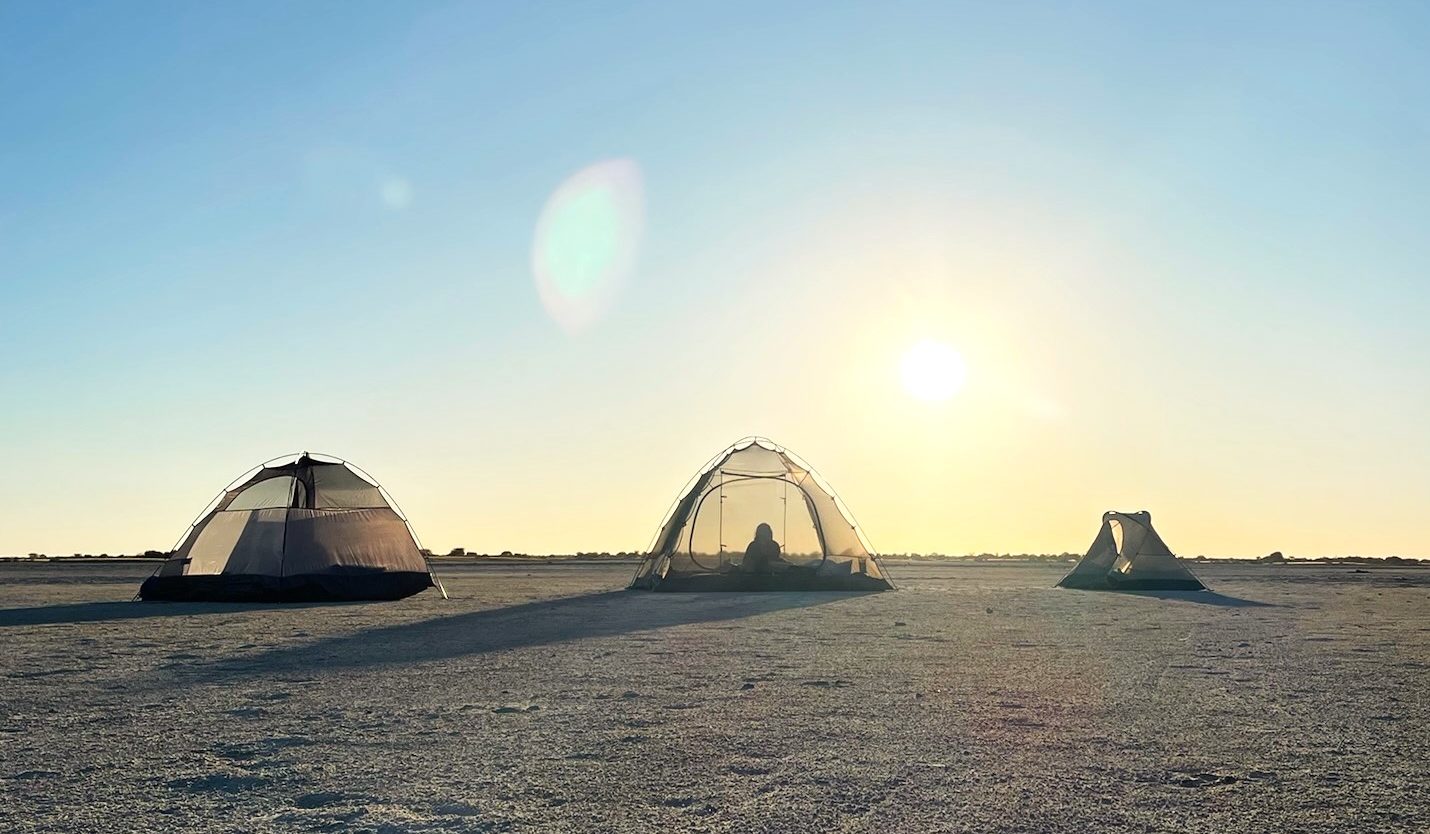This time with a focus on fly camping, Dave Waddell catches up with exploration specialist and pro guide, Kyle de Nobrega, who lives and breathes a style of adventure that carries little, explores far, and demands that we step out of our comfort zone, the reward for doing so being ‘utterly transformational, an experience you just cannot find on Google’.
Kyle, I know you’re a huge fan of fly camping. Can you tell us a bit about what it is that so attracts you to this form or style of camping and some of your earliest experiences of doing it?
Growing up, camping as a family with friends was a big part of my childhood and I remember it very much being about remoteness and having only the necessities. There were a few families that had a particular desire to be the most adventurous and to go into new and lesser visited places with motorbikes or 4-by-4s. These trips required bringing simple, lightweight camping gear. Being out there with not much tends to open a space to feel vulnerable, which in turn brings a freedom that can only be attained by getting out of your comfort zone.
I was around five or six when we started making these sorts of family trips. It’s something I’ve carried with me since, and it has had an enduring influence on my style of guiding and the trips I most enjoy designing — being out in nature with the bare minimum, which is what fly camping is all about. I love the state of having very little, but enough to be comfortable for an evening or even a week out in the wild.
Now that I have my own family, we made a conscious decision to live where we do, in Maun, in Botswana, at the edge of wilderness and the entry point to the Okavango Delta, moving away from the permanent lodge environment of being a guide or manager at a camp. There’s some liberty that you have when living in camp, to explore and adventure outdoors, but you also don’t have total freedom. When we left almost 15 years ago, we wanted to settle in a place where we not only have a home base but can easily pack up and access the things we really enjoy, like camping with family and friends.

Fly camping as a family has been a powerful way of resetting. If you’ve had a particularly hard week or two at work and want to break up routine, it’s a quick fix to get back to the simple life. Again, the freedom and the emotion it evokes is incredible. It’s no surprise when guests are doing it on safari that it ranks as one of the most special experiences, even if it’s the simplest. In theory, it’s the most cost-effective night of their whole journey and while it might not be the best sleep ever of the trip, it ends up as the highlight experience.
For my family’s part, we are always just an hour’s drive from a leopard track, if not less than that. If we wanted to, we could go camping five kilometres east of our home tonight, and we will most likely see elephant. If we don’t see them, we’ll find fresh tracks of them, and most probably hear them. And there’s a good chance that five kilometres east of there, we may hear jackal and hyena calling and probably see either kudu, dika and impala.
What is the added value a particular client is getting by stripping everything back down to essentially a fly sheet, a fire, and a cold beer?
It is the truest aspect of a safari. What I mean by this is the connection with what it is to be human. We all know how modern life feels mostly disconnected from nature. By doing this kind of experience, something is triggered in the primal brain, anchoring you to the now. It is part of the reason why guests arrive back home and talk not of the fancy camp they might have stayed at, but rather the experience of sleeping out in the middle of nowhere, waking up to a leopard track by the fire. These are the experiences that excite guests the most because they are so foreign and wild, and yet at the same time the most natural and familiar to our ancient selves.
A great example of this is a trip I’ll be doing with guests in the Congo, mainly in the Central African Republic. The journey is designed in a such way that its climax takes place on the second to last night, when we will sleep on a platform overlooking the Dzanga Bai. A bai, essentially a clearing in the forest, is a very special spot in Africa because it’s a window onto a world generally inaccessible to most people. Dzanga Bai is particularly incredible because there are almost always around a hundred elephants gathered at the clearing. Sleeping on that platform, while almost certainly the most sleepless night of your life, is also without a doubt one of the greatest.

And it’s the challenge that makes it worth it. The preparation for this particular night requires a lot more effort, as is getting there. Generally, when suggesting to clients that we camp out like this for at least one night of the trip, do I make a point of saying it isn’t a necessity, but if they trust in the process, I guarantee that it’ll be the highlight of their journey.
Generally speaking, I really believe that if journeys like this aren’t taking travellers out of their comfort zones, then we’re not doing them right. If we want our guests to really connect with where they are and return home with this experience sitting in their hearts for the rest of their lives, then the option of sleeping on the platform – on a thin mattress, with no shower or toilet – in the middle of the world’s second-largest rainforest above a herd of elephant is something to put on the planning table. Pushing yourself to the edge, seeing into yourself. It’s utterly transformational, and an experience you just cannot find on Google. This is my experience growing up and it’s something I try to replicate for my guests.
Is there a specific type of client that this kind of journey is more suited to?
To put it simply: If you can walk, you should do this. Who are we to say a guest isn’t suited to this experience. Sure, we need to be responsible, but we also need to be brave and encourage more travellers to do these kinds of journeys. It’s our responsibility to know the terrain and understand the environment that guests will be travelling and walking through, to give them the facts so that they can make an informed decision.
I love suggesting fly camping as part of an itinerary, whether for a client after super luxe or a lower-budget safari. Of course, an adventurous spirit helps but it’s usually the most reluctant/wary client who ends up having the time of their lives. Fly camping offers a totally different experience to high-end luxury camps. It’s utterly unique every time, a feeling you can’t replicate or manufacture in a built environment like the luxe camps, many of which are hard to tell apart in terms of what they offer. Reminded of how nature gives us everything we could ever need, something like sleeping on a salt pan under the stars becomes one of the greatest nights of your life.

Simplicity, authenticity, freedom. You’ve talked about the Congo. You’ve also talked about your own doorstep. In terms of fly camping, where and what else do you associate with these qualities?
Paddling the length of Lake Tanganyika and never knowing where you’re going to sleep every night, your little tents are set up in a new spot in a place that you had no idea about prior to waking up the following morning. Doing the same in the Okavango Delta, by mokoro, from top to bottom. What’s exciting about fly camping is that there’s so much you can’t plan for. Once shelter and supplies are sorted, it’s a leap into the relatively unknown. You’re leapfrogging across landscapes and on the move every day. It’s beautiful and freeing and so very good for the soul.
I’m grateful to Kyle for sharing his passion for and knowledge of everything fly camping. If his brand of adventuring is tugging at your travelling heart’s strings, please get in touch. We know the way to nowhere.
